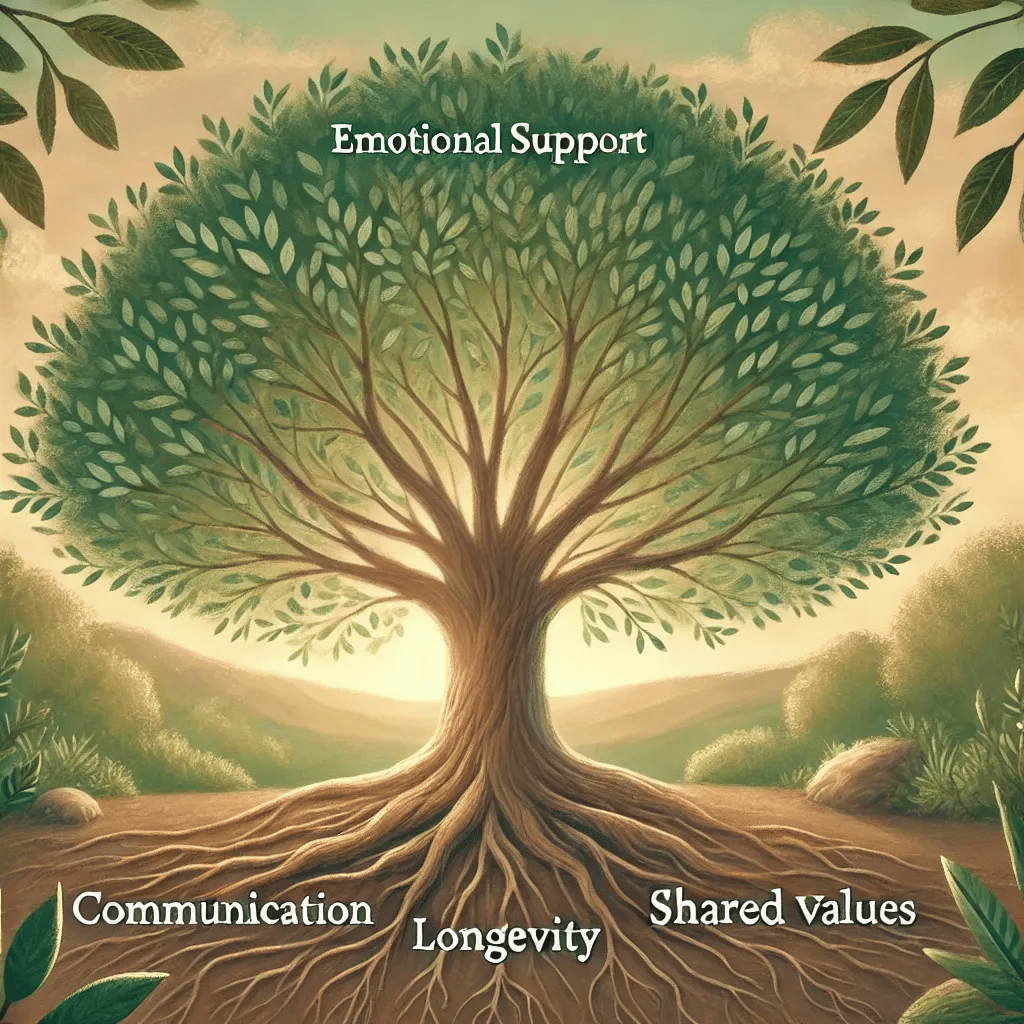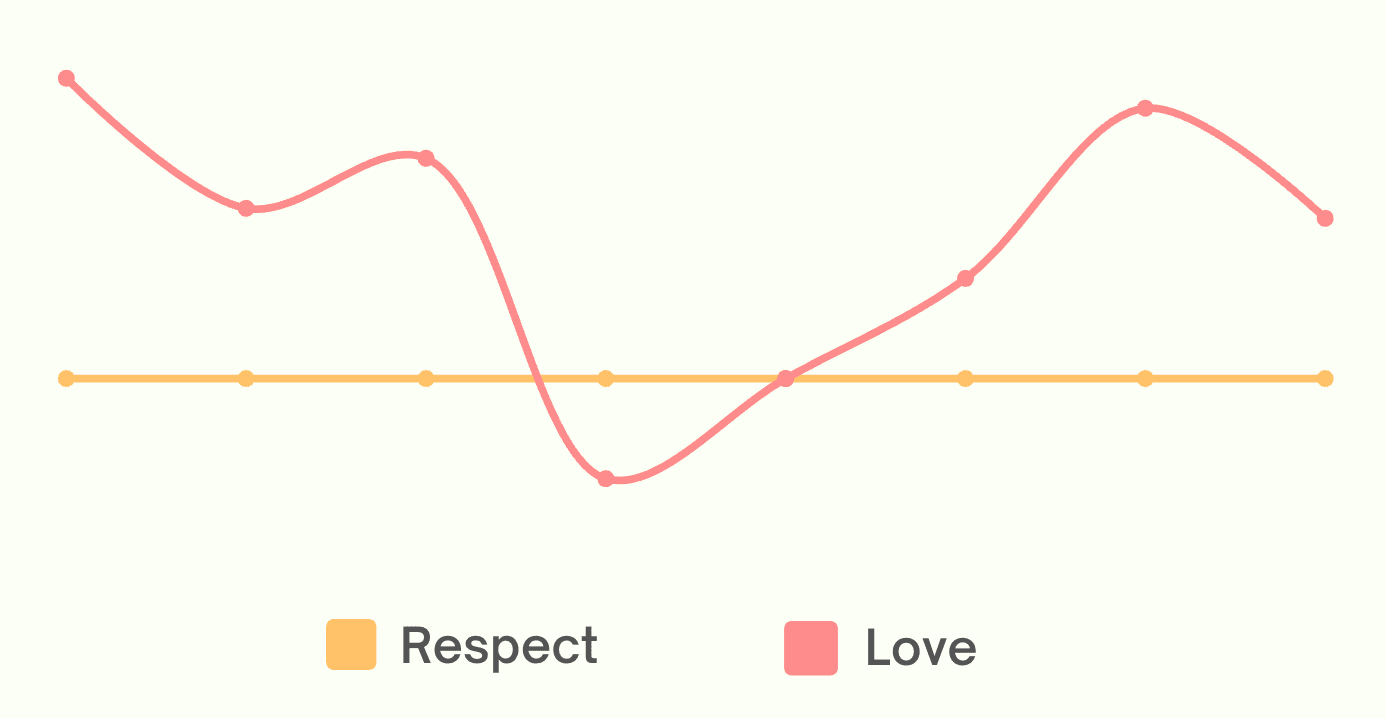First Principles of Partnerships (Romance or Business)
.. sounds a bit like online dating, that’s no coincidence. Like a romantic partner, a co-founder is someone you’ll depend on and spend a great deal of time with, hopefully for many years.
— Catheryn Li (YCombinator)
Those who have experienced a romantic partner and a co-founder will say it’s very similar.
In this post, we’ll break down a partnership into its fundamental units and learn how to create great relationships.
Why do we want life partners?
Life is a journey you go through. A journey is much more enjoyable and easy if you have a partner alongside your journey.
There will be good and hard times. In the good times, you want to share your happiness and in the bad times, you want to be supported.
The need of emotional support is the main reason why long-term partnerships exist.
For a successful relationship, both partners need to feel emotionally supported. This boils down to 3 categories

1. Longevity
The surest way partners feel secure is by trusting that their partnership lasts.
Picture your romantic partner eyeing someone prettier, smarter, or funnier — or your co-founder tempted by a flashy rival offer.
You’re not the best in the world; neither is your business. Someone shinier will always pop up. So why not switch?
In the short term, maybe. Over decades? No chance. If you think “better” means bailing, the relationship’s doomed by design.
Great things take time.
Steve Jobs and Steve Wozniak, compounded wealth and friendship over 40 years. As Wozniak said, ‘I’d give anything to sit with Steve one more time’ That’s what we are seeking — a partnership built for the long haul.
2. Clear Communication
There are multiple great books 1 2 3 4 about clear communication.
The most common issue between partners is communicating with each other below their respect levels.
Think of respect as a baseline. It’s stable. Sometimes you can feel more love, sometimes less. If you let your communication quality follow the Love line, things get messy. Respect allows you to have a baseline on your communication quality, preventing your relationship from degrading.

Picture a husband who forgot to throw the trash and a wife yelling at the husband. This is a wife who loves her husband, respects him a lot thus got married. But, at that moment the wife was having a bad day & communicated to the man he loves and respects well below that respect line by yelling at him pushing him one step further.
The same happens for business partners when one partner makes a decision that is seen as incompetent by the other. This feeling is hold by that person for months and turns into lots of demeaning comments or gossip.
Even when he (Munger) knew he was right, he gave me the reins, and when I blundered he never — never — reminded me of my mistake.
— Warren Buffett
Life is a rollercoaster with ups and downs. Good partnerships communicate the downs effectively, by ensuring never communicate below their respect line.
3. Shared Values
Most partnerships I’ve seen crumble because they lack a shared compass — some core agreement on what the whole thing’s about. Without that, you’re sunk before you start.
Picture a vegan and a meat-lover trying to launch a steakhouse. It’s a non-starter — not because they can’t cook, but because one’s heart isn’t in it. Their values clash at the root, and no amount of grit can paper over that.
For a partnership to last — whether it’s 10 years or a lifetime — you need both people pointed at the same horizon.
In romance, this tends to be simpler. You’re usually building a family, chasing a lifelong companion, or just enjoying the ride for a while. The stakes are personal, the goals are mostly unspoken but obvious.
With co-founders, it’s trickier. Are you gunning for a billion-dollar exit? A chill lifestyle business? Fame? Solving a problem you can’t stop thinking about? Power? The possibilities unfold like a winding maze, and misalignment here is a silent killer. I’ve watched founders drift apart in weeks because one dreamed of IPOs while the other wanted steady cash flow and weekends off.
The good news? You can spot this early. A few real conversations will tell you if your values sync up. Get that right, and the rest has a fighting chance.
Summary
Humans have been creating partnerships for millenniums. The recipe hasn’t changed: trust that lasts, words that connect, and a shared path worth walking.
It’s simple, not easy. Choose your partner like the world depends on it — because your world just might.